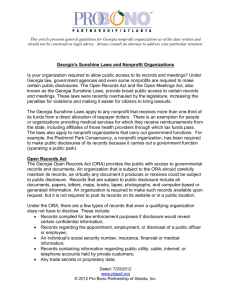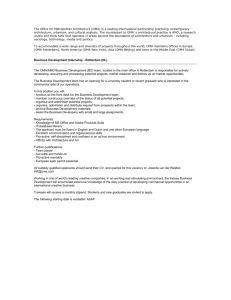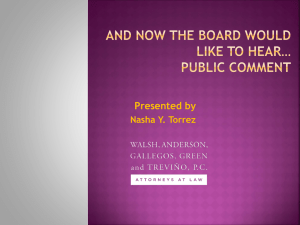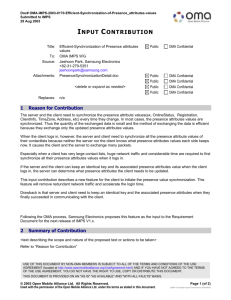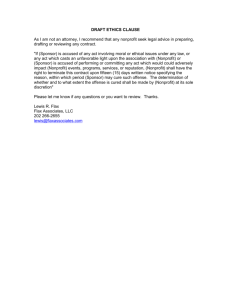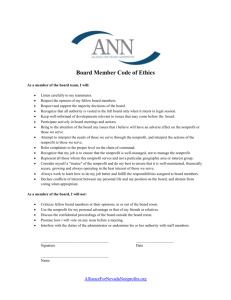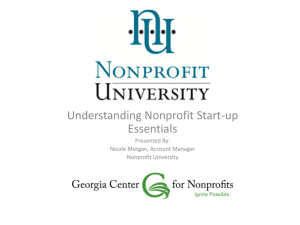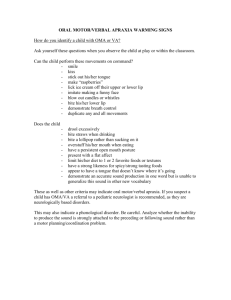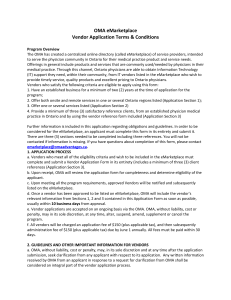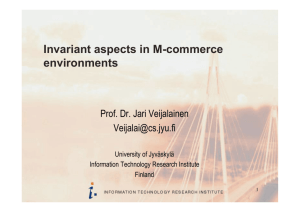6/8/2010 www.pbpatl.org Georgia's Sunshine Laws and Nonprofit
advertisement
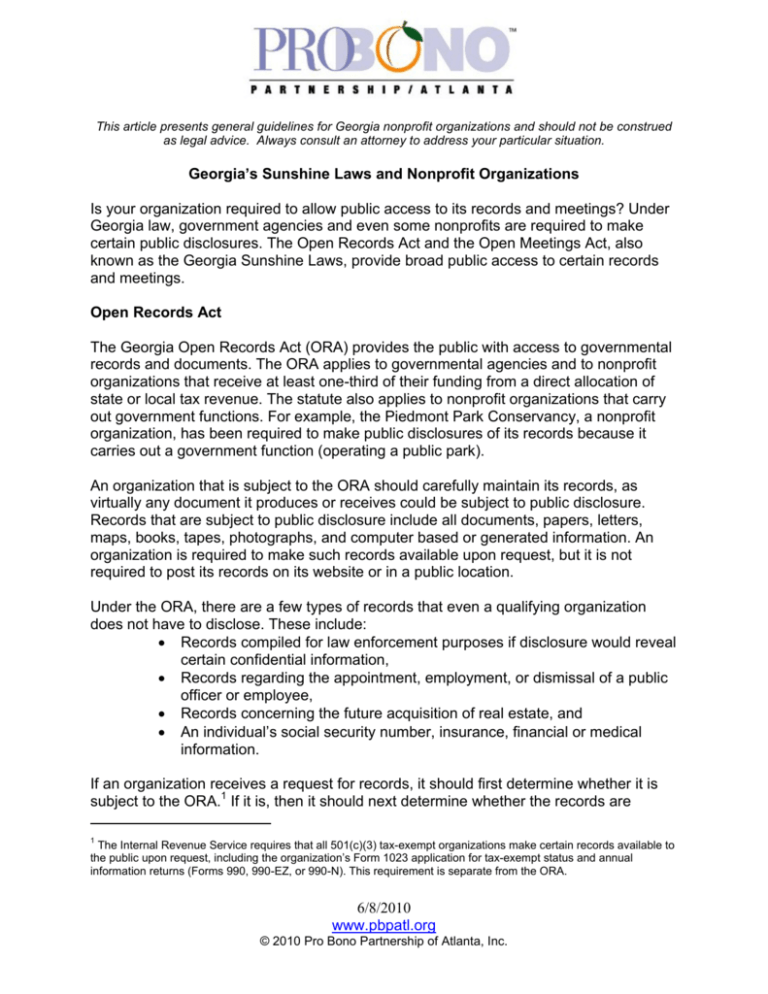
This article presents general guidelines for Georgia nonprofit organizations and should not be construed as legal advice. Always consult an attorney to address your particular situation. Georgia’s Sunshine Laws and Nonprofit Organizations Is your organization required to allow public access to its records and meetings? Under Georgia law, government agencies and even some nonprofits are required to make certain public disclosures. The Open Records Act and the Open Meetings Act, also known as the Georgia Sunshine Laws, provide broad public access to certain records and meetings. Open Records Act The Georgia Open Records Act (ORA) provides the public with access to governmental records and documents. The ORA applies to governmental agencies and to nonprofit organizations that receive at least one-third of their funding from a direct allocation of state or local tax revenue. The statute also applies to nonprofit organizations that carry out government functions. For example, the Piedmont Park Conservancy, a nonprofit organization, has been required to make public disclosures of its records because it carries out a government function (operating a public park). An organization that is subject to the ORA should carefully maintain its records, as virtually any document it produces or receives could be subject to public disclosure. Records that are subject to public disclosure include all documents, papers, letters, maps, books, tapes, photographs, and computer based or generated information. An organization is required to make such records available upon request, but it is not required to post its records on its website or in a public location. Under the ORA, there are a few types of records that even a qualifying organization does not have to disclose. These include: • Records compiled for law enforcement purposes if disclosure would reveal certain confidential information, • Records regarding the appointment, employment, or dismissal of a public officer or employee, • Records concerning the future acquisition of real estate, and • An individual’s social security number, insurance, financial or medical information. If an organization receives a request for records, it should first determine whether it is subject to the ORA.1 If it is, then it should next determine whether the records are 1 The Internal Revenue Service requires that all 501(c)(3) tax-exempt organizations make certain records available to the public upon request, including the organization’s Form 1023 application for tax-exempt status and annual information returns (Forms 990, 990-EZ, or 990-N). This requirement is separate from the ORA. 6/8/2010 www.pbpatl.org © 2010 Pro Bono Partnership of Atlanta, Inc. subject to disclosure under the ORA. If the organization believes the records are not subject to disclosure, it must provide a written statement to the requesting party explaining the exemption within three business days. If the records are subject to disclosure, the organization must respond within three business days and either make arrangements for inspection and copying or provide a written description of the records and a timetable for making the records available. The organization only needs to provide reasonable access to the requesting party. It is not required to comb through files, compile sets of documents, make copies, or summarize information for the requesting party. Open Meetings Act The Open Meetings Act (OMA) requires government meetings to be open to the public. The purpose of this law is to eliminate closed-door government meetings and reduce public distrust of government actions. Nonprofit organizations also need to be aware of the OMA. Like the ORA, the OMA applies to nonprofit organizations that receive at least one-third of their funding from state or local tax revenue. Georgia courts have held that the statute also applies to nonprofit organizations that carry out government functions. For example, the Olympic Task Force Selection Committee, a nonprofit organization, was required to comply with the OMA because it carried out certain government functions of the Atlanta Housing Authority. The Sexual Assault Center of Northeast Georgia, a nonprofit organization, was required to comply with the OMA because it received government grants and because it carried out government functions by acting under the authority of a county police department. If a particular organization is subject to the OMA, its regularly scheduled meetings must be open to the public. Meetings do not have to be conducted in person to be subject to the OMA. A meeting that occurs over the telephone or internet may also be required to be open to the public. The broad definition of a meeting under the OMA means that most types of meetings will be required to provide public access. There are a few limited types of meetings that are not required to be open to the public under the OMA, including meetings, or portions of meetings, in which members discuss: • the future acquisition of real estate, • the appointment, employment, disciplinary action, or dismissal of an officer or employee, or • matters within the attorney-client privilege as recognized by Georgia Law. If an organization determines that it is subject to the OMA, it must do the following in order to comply with the law: • set the time, place, and dates of its regular meetings; • post that information in a conspicuous place available to the public at the regular meeting site; 6/8/2010 www.pbpatl.org © 2010 Pro Bono Partnership of Atlanta, Inc. • • • • • make an agenda of all matters expected to be discussed available to the public prior to the meeting; post the agenda at the meeting site during the two-week period before the meeting; allow visual and sound recording during the meeting; make available to the public a summary of the subjects acted on and a list of members present at the meeting within two days after a meeting; and if a meeting must be canceled or postponed, inform the public at least twentyfour hours beforehand at the place of the regular meetings. If the requirements of the OMA are not met, then any action taken at a meeting is not binding. 6/8/2010 www.pbpatl.org © 2010 Pro Bono Partnership of Atlanta, Inc.
